5 Mental Health and Wellbeing Tips for Tradies
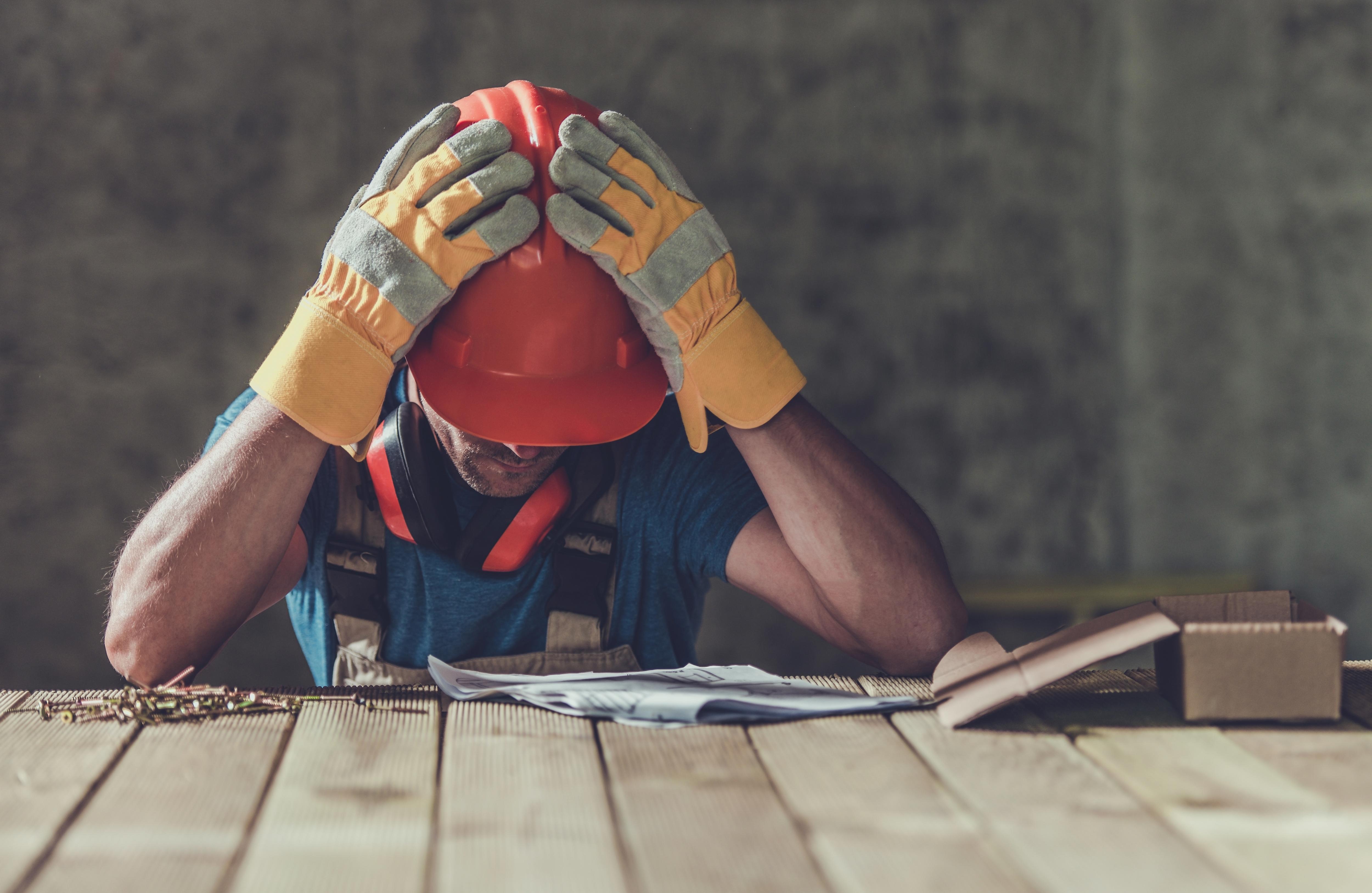
The majority are already aware of the physical dangers on and around the worksite, but how aware are we of the considerable psychological risks?
The statistics around mental health for tradies and other blue-collar workers are alarming, with recent studies showing Australian construction workers are 70% more likely to take their own lives than employees in other industries.
Despite mental health issues like depression and anxiety being incredibly widespread in all walks of life and professions, mental health may not be something all tradies talk about easily.
While tradies will openly chat about physical health, the discussion of mental health is still regarded as somewhat taboo (particularly on the job site) and as a result, is often avoided until someone’s at their breaking point.
In the same way that tradies discuss and look after their physical health, it’s just as important they look after their mental wellbeing.
It’s also important to employers to note that under Work Health and Safety laws, it’s a business’s duty of care to manage risks to psychological health and safety and eliminate exposure to psychological hazards. Failure to do this can have massive consequences for businesses and may result in criminal prosecution and penalties up to imprisonment for individuals involved.
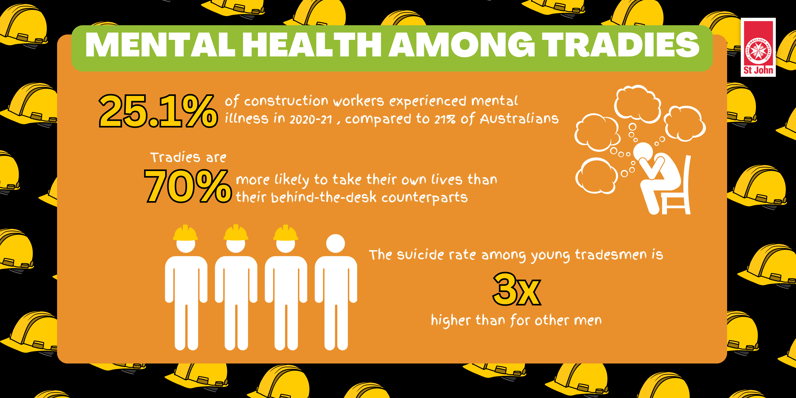
5 Tips for Tradies to Prevent the Onset of Mental Health Illness
Preventing the onset of mental health problems before they occur, and supporting people to stay well, is an important approach to improving mental health in our communities.
Here are five simple things that can be done on and off the work site to help create a psychologically safer environment, which could reduce the risk of severe mental health issues occurring.
1. Look out for a mate
When you are working with somebody upwards of 40 hours a week, it’s easy to notice when they are not quite themselves. They might seem stressed, irritable or have a reduced ability to concentrate on the job at hand. Looking out for a mate is identifying when your co-worker is not quite right and starting the conversation that will make a difference.
2. Start a conversation
The high majority of the trade workforce are men and it’s often difficult for men to openly discuss their emotions and thoughts. Many men are wired to keep their feelings to themselves, to just ‘get on with it’. This kind of thinking can be harmful, not just for themselves, but also for the people around them. Truly looking out for a mate, might mean standing up and starting the tough conversation, especially if there is growing concern about their mental wellbeing. It could be the moment you’re there for your mate in their darkest of moments, and the impact you could have is worth the temporary awkwardness you might feel when starting the conversation.
3. Take care of yourself
The same way you look out for your mate’s mental health, it’s just as important you look out for your own mental wellbeing. Practicing self-care means different things to different people, whether it’s cooking yourself a nourishing meal, hitting the gym or spending time with mates, it’s important to dedicate time to do the things that make you feel good. For us to get the best out of our minds, we need to pay attention to how we are feeling and do regular activities to help us stay mentally healthy and connected to the people around us. Most importantly, if you are experiencing a difficult time, seek support from friends and family because keeping silent could make it worse. If you start looking out for you, you’ll be in a much better position to help others.
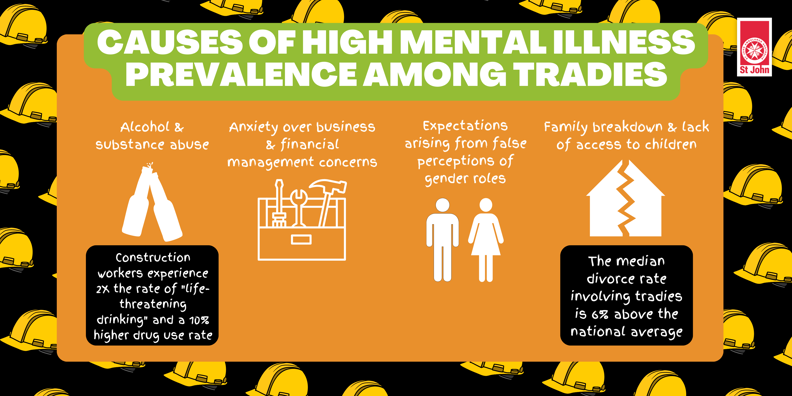
4. Speak with a health professional for a confidential chat
For tradies, speaking with a health professional might seem like you are ‘weak’. When in fact, it is probably the strongest thing you can do. If you are finding it difficult to cope with everyday life, speaking to a third party who doesn’t personally know you might be easier. Health professionals deal with mental health concerns every day and are trained to support you with sensitive issues. They can help you with current facts about your particular concern and give you options based on facts, and they always have your best interests in mind. Importantly, anything you discuss with your doctor or health professional is strictly private and confidential.
5. Complete a Mental Health and Wellbeing Workshop
Many people will experience periods in life where maintain good mental health may be a challenge. Completing a Mental Health and Wellbeing Workshop is a great way to develop awareness and understanding of your own mental health and wellbeing, so that you can better support yourself through challenging times. The workshop focuses on preventative skills and strategies to support healthy thinking patterns, to help reduce the risk of developing a serious mental health problem.
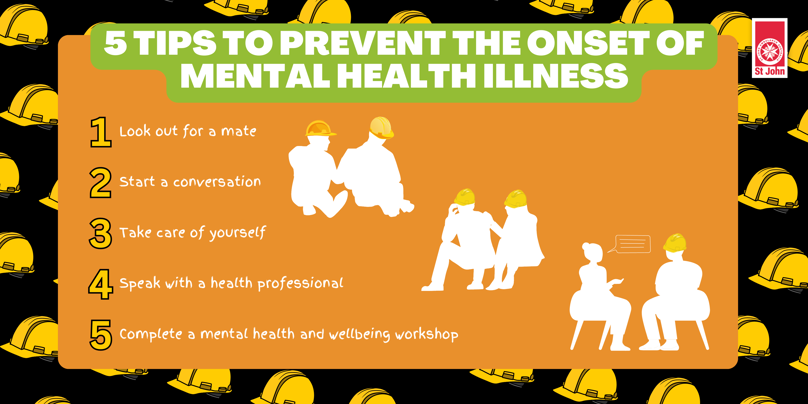
The best ways to help reduce the alarming mental health statistics for tradies, is to raise mental wellbeing awareness, understanding and to get people talking. For employers, making mental health a priority and offering resources to staff will help lessen the stigma.
Although tradies might have a tough exterior, they may be struggling on the inside. Let’s prioritise mental health for tradies the same way we do their physical health.
If you or someone you know needs help, please contact Lifeline on 13 11 14 or visit lifeline.org.au.
References
https://weldaustralia.com.au/news-views/the-impact-of-covid-19-unemployment-on-tradies-mental-health
https://www.legislation.vic.gov.au/in-force/acts/occupational-health-and-safety-act-2004/036
First Aid for the Mind eLearning


Mental Health and Wellbeing Essentials Workshop
Delivered in a face-to-face workshop setting. Suitable for members of the general public interested in prevention skills and strategies. Students may or may not be employed or part of a workplace.
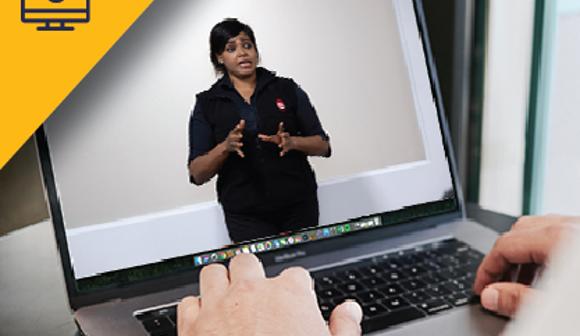
Mental health and crisis support (Virtual)
Gain the essential skills and confidence to recognise and support people with a range of mental health issues such as depression, anxiety, suicide and addiction.
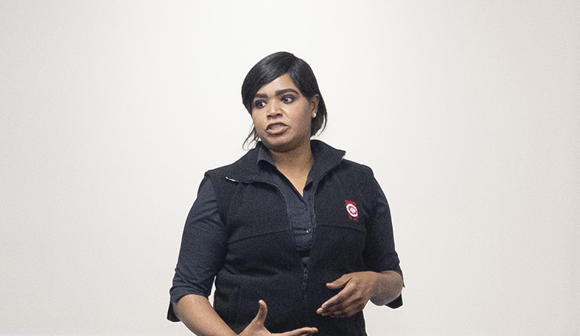
Mental health and crisis support (Face-to-face)
Gain the essential skills and confidence to recognise and support people with a range of mental health issues such as depression, anxiety, suicide and addiction.
